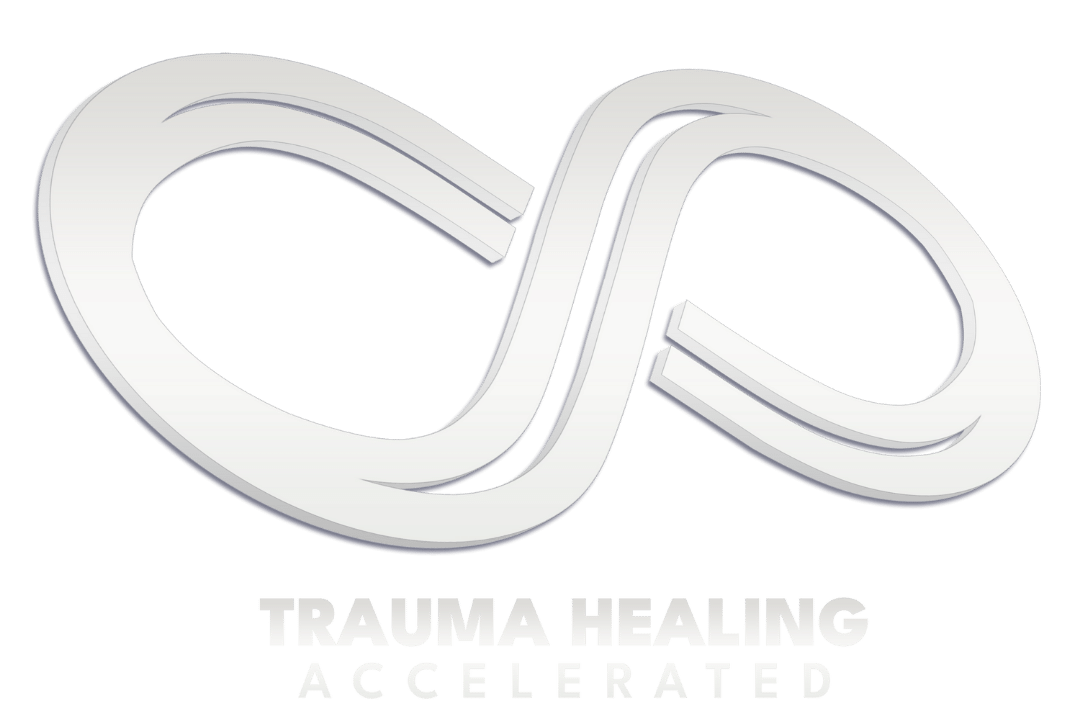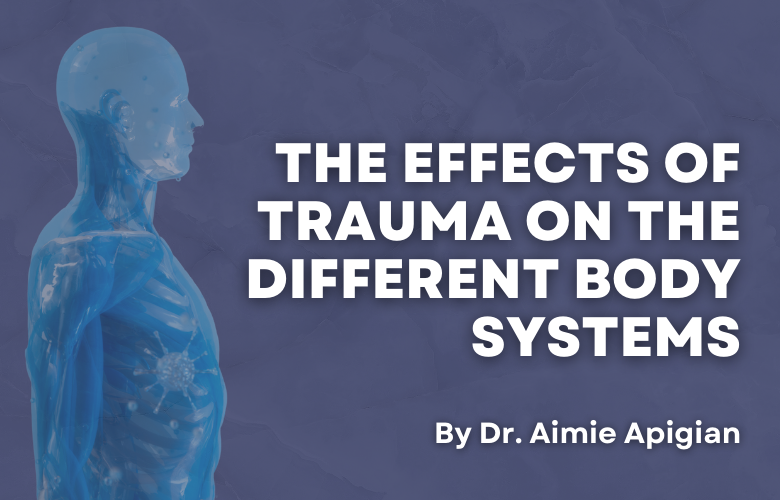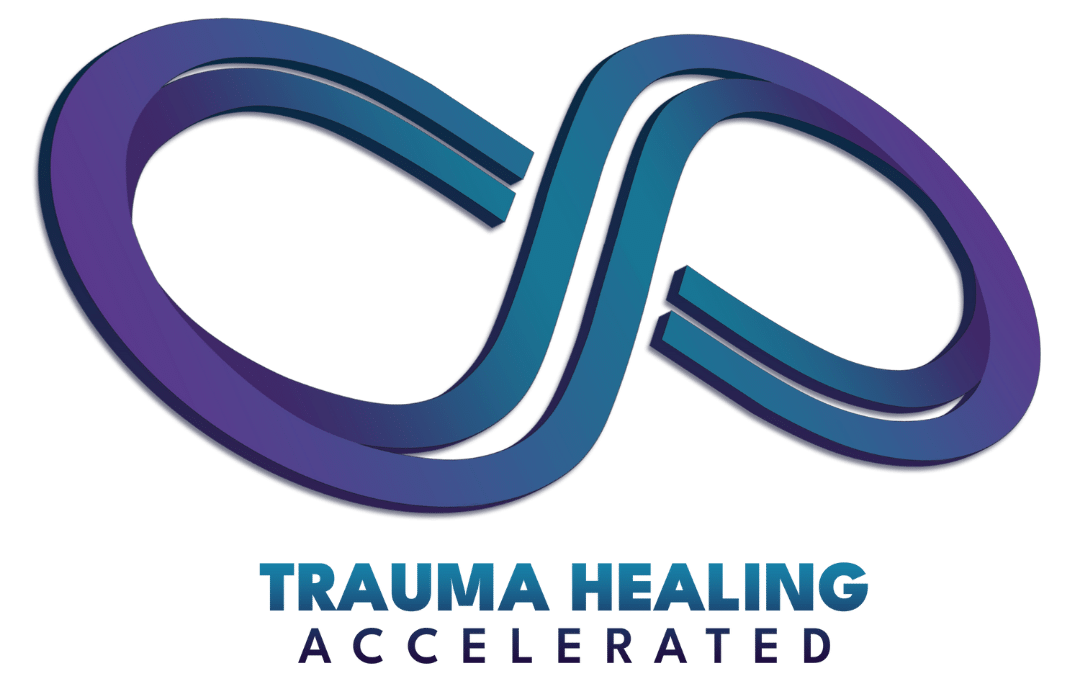The Effects of Trauma on the Different Body Systems – Science dealing with the connection between trauma and the body’s physical health is still a new field of medicine, but it’s quickly growing! With each new study, we find new ways in which past stress, adversity, and trauma affects the body years later.
To introduce the topic, let’s look at this table comparing Americans with adverse childhood experiences (ACEs).
Does this surprise you?
Early life stress is still a relatively new field, many people aren’t aware that many of their symptoms and diseases are all related to their past experiences. Many health professionals are still unaware of the connection between trauma and these different diseases, therefore, many don’t know how to help other than prescribe medications to manage the disease.
However, I also have to mention that a majority of people are still unaware that they experienced attachment trauma during early childhood. They weren’t physically or sexually abused, their parents were good people, and they don’t count the emotional disconnect that results in attachment trauma. If one is unaware of their attachment trauma, how could they connect their struggling health as an adult to their childhood?
As we enter into this new series on trauma and the body, I recommend you look more into the fields of Psychosomatic Medicine and Mind-Body Medicine for more information. They have really contributed to our understanding of stress and emotions on one’s health, which is at the core of our discussion of trauma and the body.
Trauma Becomes Our Biology
One of the sayings I heard frequently in the 12-Step Alanon meetings where I started healing from my painful past was “Wherever I go, there I am.”
The point was that it’s not the situation or the environment that’s the problems, but it’s me that continues to act and react the same way to situations! Grow up, move away, change jobs, change marriages, but you’ll find the trauma still goes with you. Wherever you go, there you are!
I also learned this lesson when I adopted Miguel from the California foster care system. Of course, the social workers told me all he needed was a stable, loving home and he would do great.
This was not true. He brought his past and trauma with him; it was in him. He needed a lot more than just a stable, loving home.
As we look at how past trauma affects our body and health years later, we are reminded of the big picture that trauma becomes our biology.
Trauma sets into place a biology of stress and survival.
This biology of stress and survival is a huge burden on the body, and causes many diseases to develop decades later. These diseases are only the tip of the iceberg. They have been slowly developing for a long time.
This is actually good news, because we can do things to change our biology from stress and survival to calm, grateful, and connected. This change will be a protective factor for our health and is part of what we call healing from trauma.
Let’s take a look now at the biology of trauma.
Adverse Childhood Experiences and Attachment Trauma
One of the best studies out there that looks at trauma and the body is the body of literature on adverse childhood experiences. These studies have given us a lot of information on the link between trauma and the body.
The first study was done in 1980 in San Diego at the Kaiser Preventive Medicine department where Dr. Felitti started asking his obese patients in the weight management program about their past. He found the majority had experienced childhood sexual abuse.
Based on these findings, a study was developed by looking at multiple types of childhood traumatic experiences and how it demonstrated an association of adverse childhood experiences with health and social problems as an adult. This is known as the ACE study. Thankfully, several more studies on the long-term effects of ACE’s have now been done.
What I do like about the ACE study is that it looks at both childhood abuse and household dysfunction as causes of early childhood stress.
However, it’s important to note that the ACE’s studies don’t include attachment trauma. It’s more difficult to assess objectively, but a person can have many of the same outcomes of the adverse childhood events studies, but not have many or any of the adverse childhood events in their survey.
To be clear, attachment trauma is a form of early childhood trauma that results from emotional disconnect between a parent and an infant in the first 12 months of life. This results in long-term health effects and any adverse childhood experiences will just compound onto this initial trauma.
Early Life Trauma Becomes Biologically Embedded
Stress in early life causes “biological embedding,” which is a term for trauma becoming our biology due to changes in our genes. It causes imbalances in the brain and body that continue for one’s lifetime.
An interesting study just published last month showed that early life stress causes changes in the expression of DNA, and this is why the effects last into adulthood. These are called “epigenetic changes,: where it isn’ the DNA being changed, but certain parts of the DNA being turned off and turned on by early life stress.
In this study, they found adverse events prenatally also have this same effect on biological embedding. It’s possible to have lingering effects from stressful events experienced in the womb! This may help explain why even infants adopted at birth can develop characteristics of Reactive Attachment Disorder.
The processes affected by prenatal and early infancy adverse events include characteristics that many of us are familiar with: behaviors and our cognitive function! The specific ones they looked at included impaired learning, memory, depressive, and anxiety-like behaviors.
Because the trauma has become apart of our biology it has been so difficult to recognize behaviors or symptoms from trauma, because this is probably the way we have always been.
Then we decide to change and we realize it’s more difficult than just waking up one day and deciding to be kind, calm, and mature. This is also because of the effects of trauma on all the systems in our brain and body.
Adverse Childhood Experiences and Hormones
Adverse childhood experiences also change the stress response pathway, known as the HPA axis (Hypothalamus-Pituitary-Adrenal Gland). This is the stress pathway that involves both the brain and body, as well as the different hormones they each make, as shown in the image below.
The HPA axis coordinates a rapid or chronic state of stress in the whole body as these hormones flow through the blood to all the organs and systems in the body. Two of the main stress hormones produced by the adrenal gland during a stress response are cortisol and adrenaline. The picture it shows an example of cortisol communicating with the immune system.
Many times with chronic stress, cortisol levels stay really high causing lower amounts of sex hormones, increased belly fat, and poor immune system.
A number of studies are done on rodents that look at the effects of early childhood stress. Many studies have shown that separation from the rodent’s mother in their early life longer than three hours per day increases the activity of this stress response (HPA axis) and programs (biological embedding) lasting changes in not only this system, but also in the amygdala (threat assessment part of our brain) and hippocampus (memory part of our brain).
They have found similar imbalances to the HPA axis stress response system in adults who were separated from their parents during World War II. The earlier they experienced the separation, the more imbalance in their stress response they had as an adult.
While this is beyond the scope of this blog, I will introduce the topic of gender differences in the biology of trauma. An interesting finding in this study was that the adult women showed more cortisol (stress hormone) at baseline, whereas the adult men had more reactivity in response to stress (adrenaline).
Early Life Stress and Inflammation
Early life stress causes changes in the expression of a gene that causes exaggerated inflammatory responses.
Increased inflammation in the brain is part of that. A study published in January 2017 showed that adult rats, who as children, were separated from their mothers showed increased brain inflammation as adults after being given anesthesia.
An important fact to know about this exaggerated inflammatory response in the body is the association of early life stress to adult autoimmune diseases, cancer, and all other immune-system related conditions.
Early Life Stress and Nervous System
Adverse childhood experiences alter the actual structure of the neurons (brain cells) and the communication pathways in the brain.
This effect on the neurobiology creates an increased risk for mood and anxiety disorders as an adult.
Laundry List of Diseases Associated With Early Life Stress
Because of these DNA, hormone, immune and neural imbalances, there are a multitude of diseases where trauma can show up in a person’s health.
Conditions associated with adverse childhood experiences include the following:
- Frequent or Severe Headaches
- Heart Disease including Heart Attacks
- High Blood Pressure
- Cancer
- Obesity
- Rheumatoid Arthritis
- Chronic Lung Disease (Emphysema)
- Asthma
- Bone Fractures
- Liver Disease
- Stroke D
- Diabetes
- Sleep Disorders: sleep apnea, narcolepsy, nightmare distress, sleep paralysis
- Thyroid Disease
- Fibromyalgia
- Chronic Fatigue
- Chronic Pain, Especially Chronic Back Pain
- Irritable Bowel Syndrome
- General Abdominal Pain
- Overall Poorer Health (Not otherwise defined, meaning more symptoms but no official diagnosis). This was further characterized by more days in bed and greater difficulty in functioning in everyday life.
This is not necessarily a complete list, and there are many studies looking at other conditions and their associations with early life stress.
Because there isn’t any health condition that isn’t influenced by the immune system, the nervous system, or hormones, any condition will have the tendency to have flare-ups or be more difficult to manage with a biology of trauma.
Effects of Childhood Trauma on Mental Health
This is the laundry list of mental health diagnoses associated with early life stress:
- Anxiety and Fear
- Depression
- ADHD
- OCD
- PTSD
- Personality Disorders
- Phobias
- Anger, Aggression or Hostility Problems
- Eating Disorders
- Suicide Attempts
- Substance Use and Addictions
- High-Risk Sexual Behaviors
Summary
Stress and trauma cause health problems, especially if the stress and trauma were a long time ago in one’s early childhood.
This is by no means a death sentence, but is meant to bring awareness so you can do something. Be gentle with yourself, and as you are ready, gather information about your past and your health so you can have a better quality of life and health.
For hope and encouragement, especially if you already have one of a few of these diseases listed, I recommend the book Love, Medicine and Miracles by Bernie Siegel. He is a surgeon who worked with women who had cancer. It will give you practical tips for preventing and reversing diseases associated with emotional stress. You can find that here.
Donna Nakazawa, a physician, shares her experience with health problems as a result of early childhood trauma. She has a blog called “I’m not cured, but I am healing” that is informational.
This is a tough topic, and just reading this may trigger a flare of stress symptoms, and you may feel overwhelmed, exhausted, depressed, or anxious after reading this. This is usually a sign from your body, telling you there is truth here that it wants you to see and acknowledge.
Listen to your body and what it’s trying to tell you. And remember, be gentle with yourself!
Questions to Ponder:
- How would you rate the level of stress you have experienced over your lifetime?
- More importantly, do you know what your early life was like?
- What about your prenatal experience?
Finally, if you’re interested in getting your ACE score, you can take a quiz here, knowing it’s not a complete list of childhood trauma, just the ones easiest to objectively measure.
Big Hug,
Dr. Aimie
References
Dube SR, Fairweather D, Pearson WS, Felitti VJ, Anda RF, Croft JB. Cumulative Childhood Stress and Autoimmune Diseases in Adults. Psychosomatic Medicine. 2009;71(2):243-250. doi:10.1097/PSY.0b013e3181907888.
Heim C, Nemeroff C. The Role of Childhood Trauma in the Neurobiology of Mood and Anxiety Disorders: Preclinical and Clinical Studies. Biol Psych. June 2001; 49(12): 1023-1039
https://en.wikipedia.org/wiki/Adverse_Childhood_Experiences_Study
Kajeepeta S, Gelaye B, Jackson CL, Williams MA. Adverse Childhood Experiences Are Associated With Adult Sleep Disorders: a Systematic Review. Sleep medicine. 2015;16(3):320-330
Pesonen AK, Raikkonen K, Feldt K, Heinonen K, Osmond C, Phillips D, Barker DJ, Ericsson J, Kajantie E. Childhood Separation Experience Predicts HPA Axis Hormonal Responses in Late Adulthood: A Natural Experiment of World War II. Psychoneuroendocrinology. 2010;35(5):758-767
Schuler LA, Auger AP. Psychosocially Influenced Cancer: Diverse Early-Life Stress Experiences and Links to Breast Cancer. Cancer prevention research (Philadelphia, Pa). 2010;3(11):1365-1370
Smyth N, Thorn L, Oskis A, Hucklebridge F, Evans P, Clow A. Anxious Attachment Style Predicts an Enhanced Cortisol Response to Group Psychosocial Stress. Int J Biol Stress. 2015;18(2). doi.org/10.3109/10253890.2015.1021676
Springer KW, Sheridan J, Kuo D, Carnes M. The Long-term Health Outcomes of Childhood Abuse: An Overview and a Call to Action. Journal of General Internal Medicine. 2003;18(10):864-870


